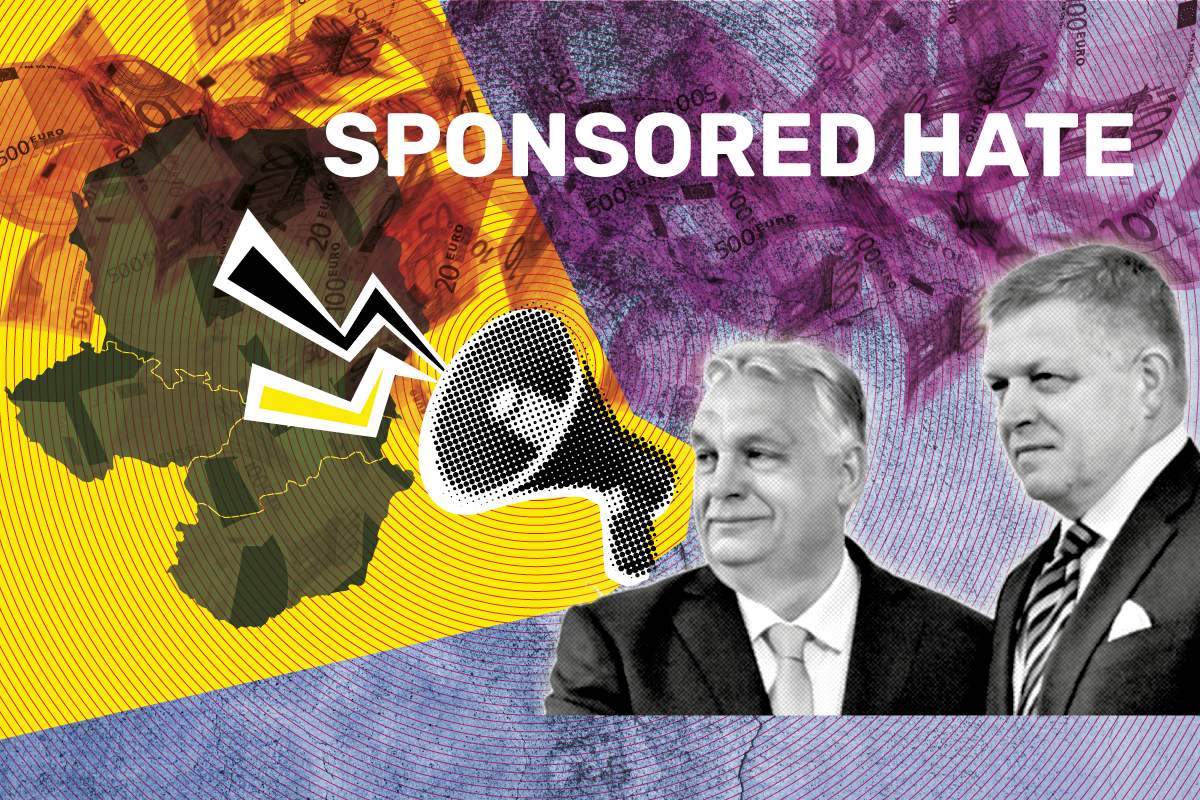This cross-border investigation reveals how politicians across Central Europe weaponise paid social media ads to attack journalists and civil society, spreading disinformation and hate.
Coordinated by the Investigative Center of Jan Kuciak, the investigation shows how politicians in Hungary, Slovakia, the Czech Republic and Poland have spent tens of thousands of euros on online campaigns spreading disinformation and targeting independent journalists. The sponsored posts, often framed as ordinary political communication, helped push narratives that paint critical voices as “foreign agents” or members of the “Soros network”.
Over a one-year period from July 2024 to June 2025, journalists identified 773 hateful political advertisements across Meta platforms. These posts, promoted through paid campaigns, often evaded moderation systems while reaching tens of thousands of users with misleading or inflammatory narratives.
In Slovakia, the problem was most widespread. Almost 70 percent of all hateful ads originated from Slovak political actors, mainly Prime Minister Robert Fico’s governing coalition. His party, SMER, sponsored hundreds of posts attacking journalists, NGOs and news outlets including Denník N, SME and Aktuality.
In Hungary, the ruling party’s communication ecosystem has made sponsored political ads a central part of its strategy to discredit independent journalism. Paid content frequently echoed government talking points about “foreign-funded” media and NGOs, portraying them as threats to national sovereignty. Many of these ads originated from official or affiliated pages linked to the ruling Fidesz party, its parliamentary faction and pro-government organisations.
In the Czech Republic, far-right parties such as SPD and STAČILO! focused their sponsored attacks on public service media, especially Czech Television, accusing it of bias and “Goebbels-style propaganda”. Individual journalists were frequently named and targeted, normalising harassment and hostility toward the press.
Poland showed fewer examples of such sponsored hate, though some figures from the populist Law and Justice party and the far-right Confederation used paid content to accuse journalists and activists of serving “foreign powers”.
Experts warn that even as Meta and Google phase out political advertising in the European Union, the problem will persist. Algorithms that reward outrage and polarisation ensure that manipulative narratives can continue to spread organically or through networks of fake accounts.
The investigation was carried out by the Investigative Center of Jan Kuciak, VSquare.org, Frontstory.pl, and investigace.cz. See the stories below.
